Choose Equine Therapy First, Don’t Make it a Last Resort!
“Your greatest fears are created by your imagination. Don’t give in to them.”
Winston Churchill
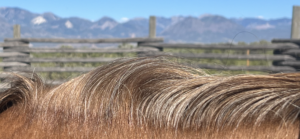
Sometimes it is necessary for humans to seek therapy. Therapy being defined as “the treatment of mental or psychological disorders by psychological means”.
Our licensed mental health professionals (LPC, LMSW, PhD) partner with trained, experienced and certified equine professionals, to provide services to clients who are dealing with the symptoms of past traumas that often include anxiety, chronic pain/illness, depression, eating disorders, post-traumatic stress, attachment disorders, insomnia, GI issues, ADHD/ADD, nightmares, and situational stress. Would you like to book an appointment? Please click here to reach our team.
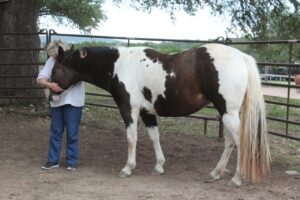
Trauma is anything that leaves us feeling helpless or poses a real or perceived threat. This includes the loss of a loved one or pet, diagnosis of a serious disease, head injuries (TBI), divorce, job loss, chronic illness, automobile accident, birth/medical/dental event, war, domestic abuse, neglect or assault.
Equine Therapy, or Equine-Assisted Mental Health services are “real” therapy that are experiential, meaning that our clients actually experience safety in a natural setting that provides the opportunity for the creation of new nuero-pathways in the brain. Activities taking place during therapy sessions are specifically targeted to therapeutic goals which are set during intake sessions and are re-evaluated throughout the process. Most of the work we do is on the ground, and this is not hippotherapy or recreational riding. Please click here to make an appointment.
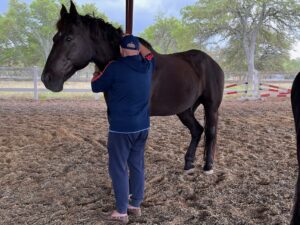
No experience with horses is expected or required. Even those that are afraid of, or dislike horses, can benefit from these interactions.
All team members are trauma-informed and have experience with nature therapy, mindfulness and somatic experiencing.
Our team is committed to safety for everyone, including our horses, and great care is taken to ensure that the horses needs are being met throughout the sessions. Would you like to book a session?
Why Horses?

Horses clearly respond to requests from clients in an open and authentic way. Clients learn vital life skills such as setting boundaries, recognizing intention, clear communication, trusting intuition and emotional self-regulation. The horses are working at liberty, which means they do not have on a halter or a lead rope. They are not trained for this work; we rely on their natural instincts and do not want compliance from our equine partners. Cooperation just feels better!
Horses are hard-wired for healthy relationships which is why they are very well-suited to partner with our team for those seeking mental health support. They can engage in connected relationships based on trust, and not fear, and they can clearly demonstrate, without manipulation of any kind, whether the human is actually living in the present moment, or their minds are wandering into fear, distraction, management strategies, doubt and worry. They are also able to teach how important it is to recognize emotions and validate them, instead of hiding them and stuffing them away. Clients are able to overcome that feeling of being stuck, and regain their voice. Emotional resilience and intelligence are important, and horses teach these traits very well.
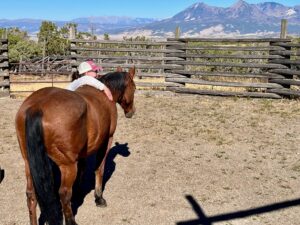
The pure joy of working with a horse in the moment and having them authentically and willingly agree to engage in activities and feel safe and present provides the opportunity to “practice” and sustain safe attachment. Learning how to navigate through conflict, ask for needs to be met, build self-confidence, connect to a positive self-image and feel empowered to engage in life are results of this important work.
Meet our team.
Click here for a free consultation.
“The True Self is not our creation, but God’s. It is the self we are in our depths. It is our capacity for divinity and transcendence.”
– Sue Monk Kidd
Our practitioners are trained and certified through The Natural Lifemanship Institute. Want to know more about our team? More about trauma?
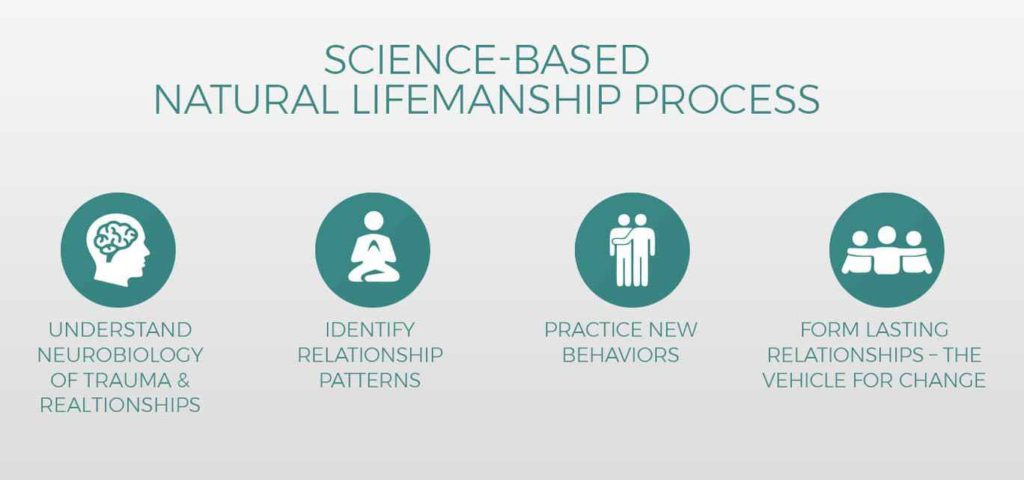
Go to our contact page to request additional information on our program.